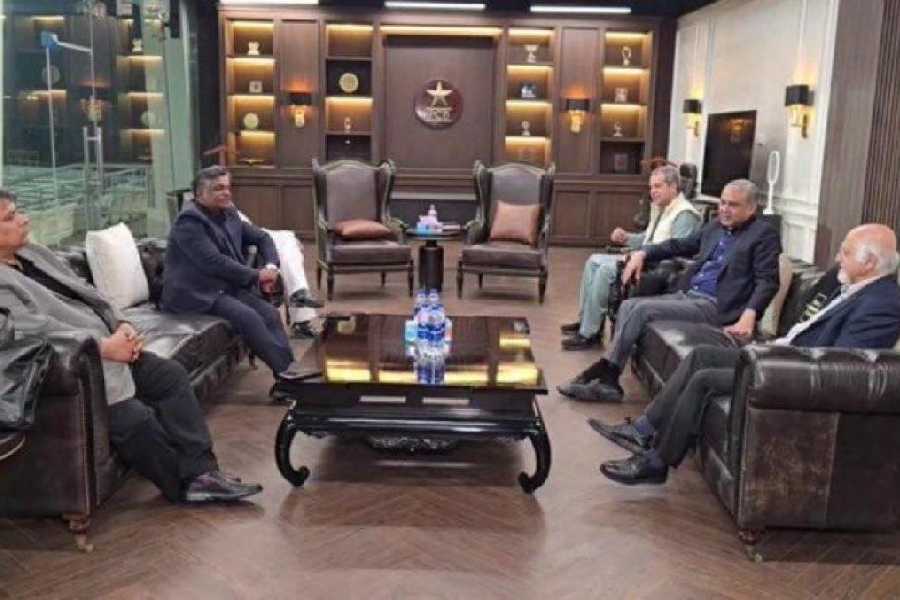nYou have been the chairman of the Legislative Council for the past two years. How has your experience been so far?
It has been a good and encouraging experience. This year, Bihar Legislative Council celebrated its centenary year, which was inaugurated by President Pratibha Patil on March 22. The Upper House has also organised a centenary lecture series. Former President of India APJ Abdul Kalam delivered the first lecture on May 3. The second lecture was organised on the “contributions of revolutionaries in the Independence struggle” on November 18, the birth centenary of freedom fighter Batukeshwar Dutt. Noted constitutional expert Subhash Kashyap would deliver the year's last centenary lecture on electoral reforms in December.
nDo you think the stature of the Upper House has fallen a little?
Yes, the decorum of the House has suffered a dent but it is not because of the educated and qualified members of the House. Some undeserving leaders have made it to the Upper House, thanks to the political parties.
nWho do you hold responsible for lowering the quality of the House?
Political parties need to think before sending their representatives to the Upper House. It is the duty of all the parties to think over whom they want to send to the Council. All parties must not only retrospect but also undergo purification to better the quality of politics in the entire country. Besides, there is a severe dearth of quality leadership in every sector across the globe and Bihar is no exception to this phenomenon.
nPeople have started questioning the relevance of the Rajya Sabha and Vidhan Parishad. What do you have to say to that?
Yes, there must be a debate on whether these institutions are relevant. What is wrong in having a full-fledged debate? Even people in England are debating the relevance of the House of Lords. Some of them are suggesting that it should be scrapped while others are of the opinion that its constitution should be changed. I am open to ideas on strengthening the House and its functioning. Electoral reforms could be one of the schemes to strengthen it.
nDo you think the Upper House should be scrapped?
No, the Legislative Council should not be scrapped. No one can deny its relevance. Gandhi Setu, Patna Medical College and Hospital, Darbhanga Medical College and Hospital are the gifts of the Upper House. Some members may have lowered the dignity of the House but its relevance and utilisation cannot be ruled out.
nAnna Hazare and his team want that the conduct of the MPs and MLAs inside the House be brought under the purview of the Lokpal Bill. What do you think?
Article 105 of the Constitution gives freedom of speech to the members of Parliament. No MP or MLA can be liable to any proceedings in any court in respect of anything said or any vote given by him in the House. Unless and until freedom is given to the members, how will they exchange their views? Therefore, the conduct of MPs and MLAs inside the House cannot be the subject matter of any court or the Lokpal team.
nAre you in favour of bringing the Prime Minister and the chief justice of India under the ambit of Lokpal?
In my opinion, the chief justice of India should not be brought under the purview of Lokpal. The reason is that the chief justice's role is not administrative in nature. He dispenses justice. It would sound awkward if the chief justice is brought under the Ombudsman because the Lokpal can be removed from the office by the President on the recommendation of the Supreme Court. The question is if the chief justice gives the nod for Lokpal’s removal, how can he come under its purview? The Prime Minister, however, should be brought under the ambit of the Ombudsman as he is the executive head.
nYou have been a Rashtriya Swayamsewak Sangh (RSS) man since your school days. What were the reasons for joining the Sangh?
I did not join the RSS by choice, it was rather an accident. One of my senior colleagues, Kashinath Mishra of Raj High School in Darbhanga, first organised an RSS camp on the school premises on June 21, 1940, and asked me to join it. It was from this stage that my journey as an RSS man began. Later, I was made the Sangh pracharak (head of publicity wing) in 1945. I worked in several districts, including Jamui, Munger and Rosera. My best period as an RSS pracharak was in 1952 at HD Jain College, Ara. Later, I was appointed as organising secretary of Bharatiya Jan Sangh the same year and was posted in Patna from where I completed my graduation in law.
About Tarakant Jha...
He was born on July 11, 1927 at Belam in Madhubani district. Jha had five brothers and seven sisters. As a child he had to travel 6km every day to reach Jogiara middle school. He passed Matriculation in 1944 from Raj High School, Darbhanga, with first division. After that he got associated with the Quit India Movement as an RSS worker.
Jha passed his BCom from HD Jain College, Ara. In 1954, he graduated in law from Patna Law College and started practising in Patna High Court. He went on to become an advocate-general in 1975. Jha entered the Upper House in 1992 for the first time on a BJP seat. Later, the party again nominated him for the Upper House in May 2006 and subsequently was elected the House chairman on August 4, 2009.
nWhat would you have been had you not been a politician?
I wanted to be a professor because I come from a family of academics. I joined Patna Law College as a teacher to fulfil my father’s ambition but later quit the post as destiny had something else in store for me.










